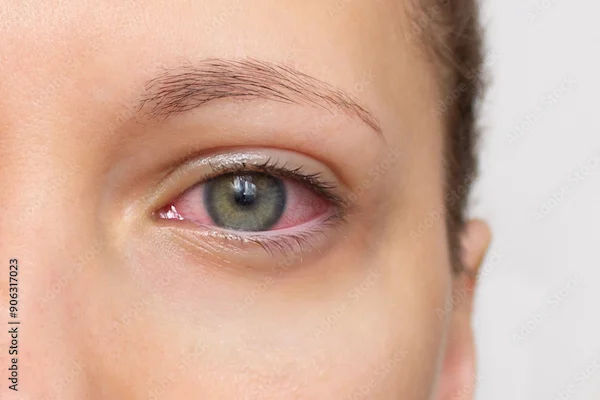Preventing Eye Infections in Rainy Season
Monsoon increases the risk of eye infections like conjunctivitis and styes. Learn how to protect your eyes during the rainy season with simple hygiene and prevention tips.

Written by Dr. J T Hema Pratima
Reviewed by Dr. Dhankecha Mayank Dineshbhai MBBS
Last updated on 13th Jan, 2026

Introduction
The rainy season brings relief from the scorching heat, but it also increases the risk of eye infections. The damp and humid weather creates a perfect environment for bacteria and viruses to thrive, leading to common eye problems like conjunctivitis (pink eye), styes, and fungal infections.
If you’ve ever experienced redness, itching, or discharge from your eyes during the monsoon, you’re not alone. Eye infections can be uncomfortable and sometimes even painful, but the good news is that they can be prevented with simple precautions.
In this article, we’ll discuss common eye infections during the rainy season, their symptoms, causes, and most importantly—how to protect your eyes and keep them healthy.
Common Eye Infections in the Rainy Season
These are the common eye infections in the rainy season:
1. Conjunctivitis (Pink Eye)
Symptoms: Redness, itching, watery discharge, burning sensation, and swollen eyelids.
Causes: Viral or bacterial infection, often spread through contaminated water or touching infected surfaces.
2. Stye (Hordeolum)
Symptoms: A small, painful lump near the eyelid, redness, and swelling.
Causes: Bacterial infection in the oil glands of the eyelid.
3. Fungal Eye Infections
Symptoms: Blurred vision, eye pain, redness, and sensitivity to light.
Causes: Exposure to contaminated water or soil, common in rainy weather.
How to Prevent Eye Infections
To prevent eye infection;
1. Maintain Good Hygiene
Wash your hands frequently with soap and water, especially before touching your eyes.
Avoid rubbing your eyes with dirty hands.
2. Avoid Sharing Personal Items
Do not share towels, handkerchiefs, or eye makeup with others to prevent infections.
3. Keep Your Eyes Clean
Rinse your eyes with clean water if exposed to rainwater or dirt.
Use artificial tears (lubricating eye drops) to keep your eyes moist and flush out irritants.
4. Wear Protective Eyewear
If you’re traveling in heavy rain, wear sunglasses or protective glasses to shield your eyes from contaminated water.
5. Avoid Swimming in Dirty Water
Pools or ponds with stagnant water can harbor bacteria—opt for chlorinated pools if you must swim.
6. Boost Your Immunity
Eat a balanced diet rich in vitamins A, C, and E (found in carrots, citrus fruits, and leafy greens) to strengthen eye health.
Stay hydrated to keep your eyes lubricated.
Consult a Ophthalmologist for Personalised Advice
When to See a Doctor
If you experience any of the following, consult an eye specialist immediately:
Severe pain or vision changes
Thick yellow or green discharge
Sensitivity to light
Symptoms lasting more than 2-3 days
Ignoring eye infections can lead to complications, so timely treatment is essential.
Conclusion
The rainy season doesn’t have to mean constant eye troubles. By following simple hygiene practices and taking preventive measures, you can enjoy the monsoon without worrying about infections.
If you notice persistent eye discomfort, don’t hesitate to seek professional help. You can easily book an eye consultation or schedule a test through Apollo 24|7 for quick and expert care.
Consult a Ophthalmologist for Personalised Advice
Consult a Ophthalmologist for Personalised Advice

Dr. K Sreekumar Reddy
Ophthalmologist
26 Years • MBBS MD (Ophthalmology) EGESTOLP
Hyderabad
Apollo Hospitals Jubilee Hills, Hyderabad
(50+ Patients)

Dr Monica Gour
Ophthalmologist
9 Years • MS(Ophthalmology) Fellowship in Cornea
Lucknow
Apollomedics Super Speciality Hospital, Lucknow

Dr. Smita Gaurav Gujarathi
Ophthalmologist
4 Years • MBBS DNB (Opthal)
Nashik
Apollo Hospitals Nashik, Nashik

Dr. C K Deepa
Ophthalmologist
16 Years • MBBS, MS (Ophthalmology), FAEH (IOL & Anterior Segment). Senior Consultant - Ophthalmology
Bhubaneswar
Apollo Hospitals Old Sainik School Road, Bhubaneswar
(150+ Patients)
Dr. Ashu Agarwal
Ophthalmologist
24 Years • MBBS, MS
Delhi
Apollo Hospitals Indraprastha, Delhi
